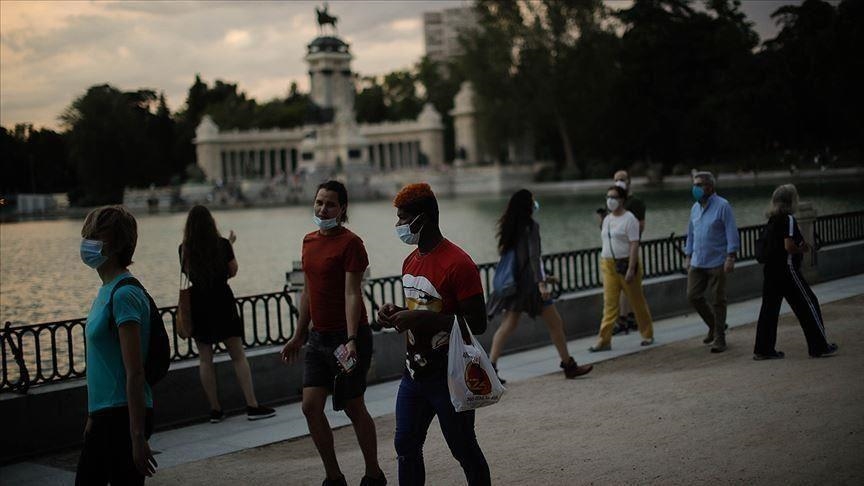Spain changes vaccine plan as virus deaths remain high
Those who tested positive within last 6 months to not be given AstraZeneca vaccine

OVIEDO, Spain
Spain significantly revamped its vaccination strategy to adapt to limitations posed by the AstraZeneca vaccine, as the coronavirus claimed 643 lives Wednesday.
Although new infections are dropping considerably, with 18,144 new cases reported, deaths remain at the highest level since April 2020.
Compared to the same day last week, fatalities increased 78, bringing the death toll to 63,704.
Active hospitalizations are slowly beginning to decline, although 42% of intensive care units are still being used for COVID-19 patients.
The regional governments of Madrid and Extremadura announced Wednesday that restrictions around bars, restaurants, and mobility will soon be relaxed.
And the Health Ministry released an updated version of its vaccination plan, specifically around AstraZeneca, which arrived this week.
As the British vaccine has been approved only for those aged 18 to 55 in Spain, the ministry had to shift gears from its original idea to prioritize frontline health care workers and the elderly.
It decided that the AstraZeneca vaccine will go to other health care workers like pharmacists, dentists, and physiotherapists, as well as people “with an essential societal function,” which is defined as police, military, firefighters, paramedics, and school teachers.
But the Health Ministry said those who have been infected within the last six months will not receive an AstraZeneca dose because reinfection is rare within that time frame.
The statement also said the Health Ministry is waiting for more evidence on whether people who have been infected only need a single dose to be fully immunized.
At the same time, Spain will not administer the AstraZeneca vaccine to active workers younger than 55 if they have severe immunosuppression, are undergoing chemotherapy, have uncontrolled heart problems, or have severe liver, kidney, metabolic or neurological issues.
The high-risk groups, along with everyone older than 56, will have to wait until their group qualifies to receive the Pfizer/BioNtech or Moderna vaccines, which are still being prioritized for those in nursing homes and front-line health care workers.
Spain has administered more than 2.2 million vaccine doses – 77% of all it has received. Nearly 900,000 people have received both shots.
Anadolu Agency website contains only a portion of the news stories offered to subscribers in the AA News Broadcasting System (HAS), and in summarized form. Please contact us for subscription options.







